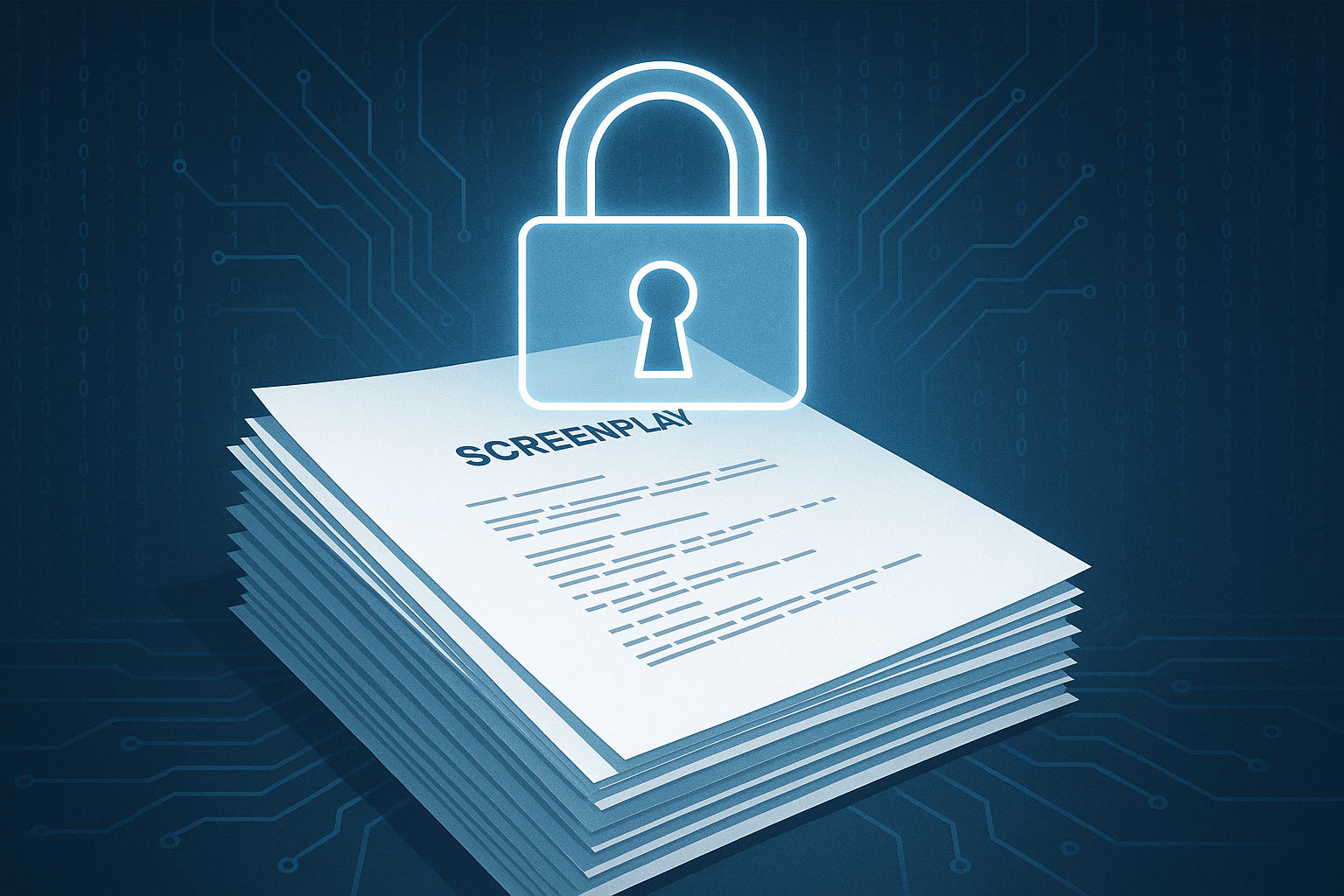The last few years have upended how scripts travel from first draft to green-light. Generative AI can ingest millions of pages overnight, studios expect airtight IP chains before signing, and recent court decisions have narrowed what counts as fair use when algorithms train on copyrighted work. Amid this turbulence, many writers still rely solely on a Writers Guild of America (WGA) registration slip for “protection.” Unfortunately, that slip is not a legal shield in federal court—only copyright registration is. In this post we’ll untangle the confusion, examine why copyright is now non-negotiable, and show how tools like Fortress automate the process so you can focus on writing, not paperwork.
Copyright Registration vs. WGA Registration—Know the Difference
The confusion between WGA registration and copyright filing remains one of the most common misconceptions among screenwriters. While both offer forms of protection, they serve fundamentally different purposes and provide dramatically different levels of legal security.
WGA registration provides a dated record of your work, primarily designed to help resolve credit disputes between writers or in WGA arbitration proceedings. It creates evidence that you possessed the script at a certain date, but crucially, it does not establish the legal rights needed to pursue meaningful litigation against infringement. WGA registration is internal to the guild's system and lacks the statutory weight of federal copyright protection.
Copyright registration, on the other hand, establishes your work in the federal legal system. It provides:
- The ability to file infringement lawsuits in federal court
- Access to statutory damages (up to $150,000 per willful infringement)
- Recovery of attorney's fees in successful litigation
- Legal presumption of validity of copyright and facts stated in the certificate
- Public record of your ownership claim
| Feature | Copyright Registration (U.S. Copyright Office) | WGA Registration (Writers Guild of America) |
|---|---|---|
| Primary Purpose | Establishes legal ownership and airtight chain-of-custody (critical for AI-training audits); integrates with Fortress for one-click filings. | Creates a time-stamped record of authorship—primarily for credit disputes and guild arbitration. |
| Legal Protection | Grants full statutory rights, including the exclusive right to sue for infringement; serves as a deterrent against AI misuse. | Provides evidentiary support of authorship/date; limited to guild proceedings and arbitration. |
| Enforceability | Required for federal infringement suits; unlocks statutory damages (up to $150,000) and recovery of attorney’s fees. | No standing to sue; remedies confined to arbitration outcomes within the Guild. |
| Damages Available | Statutory damages up to $150,000 per work plus attorney’s fees. | None |
| Duration | Life of the author + 70 years (corporate works: 95 years from publication or 120 years from creation). | Typically a 5-year registration. |
| Cost | Standard filing: $55–$85; Fortress automated filing: $199. | Flat fee (~$20) for instant online registration. |
| Processing Time | ~3–6 months standard; 24-hour filing available via Fortress. | Instant confirmation online. |
Bottom line: a WGA filing helps settle credit fights; copyright registration defends ownership in court. If you ever need an injunction, statutory damages, or leverage in a producer deal, the Copyright Office record is what matters.
Why Copyright Is Non-Negotiable for Serious Writers in 2025
Studios, streamers, and financiers increasingly demand a clean “chain of title” before attaching to a project. Without an official registration:
- You limit your legal remedies. Without federal registration, you cannot sue for infringement or recover statutory damages.
- You undermine negotiation power. Buyers discount unregistered IP because any dispute forces them into costly discovery to prove ownership.
- Option agreements can stall. Insurers often withhold Errors & Omissions coverage until registration appears in the chain.
- Buyers can exploit ambiguity. An unscrupulous party can claim “independent creation,” leaving you in an evidentiary hole.
By contrast, filing with the Copyright Office creates public record and statutory presumptions after five years. With Fortress, you can complete the filing in less than a day, automatically attach drafts, and receive a timestamped certificate—often before your next pitch meeting.
 Copyright registration remains the cornerstone of enforceable protection, even in an AI-augmented industry.
Copyright registration remains the cornerstone of enforceable protection, even in an AI-augmented industry.
Copyright Protection in the AI Era
Generative AI models have sparked a fresh wave of litigation. In Thomson Reuters v. ROSS Intelligence (Feb 2025), a federal court rejected fair-use defenses for AI training that deprived copyright owners of licensing revenue, signaling a tougher stance toward unlicensed ingestion. Meanwhile, the UK’s Getty Images v. Stability AI litigation is probing whether scraping millions of photos without permission breaches creators’ economic rights. And just this month, the U.S. Copyright Office declared that AI outputs competing with the works used in training are “unlikely” to qualify as fair use.
What does this mean for screenwriters?
- Registered scripts retain leverage. Courts look favorably on plaintiffs who registered before infringement occurs.
- Licensing markets are emerging. Rights-holder consortia are negotiating training licenses; only registered works can participate and earn royalties.
- AI detection tools need registries. Platforms that scan AI outputs for infringement rely on Copyright Office data to match text.
- Statutory damages grow in value. If an AI system ingests your script without a license, registered work unlocks up to $150k per act of willful infringement
Key Takeaways
- WGA registration is useful for credit disputes, but copyright registration is the only enforceable ownership proof.
- Courts in 2025 are leaning against fair-use defenses for unlicensed AI training, increasing the value of registered works.
- Copyright protects economic and moral rights, unlocking statutory damages and attorney fees.
- Prescene Fortress reduces filing time from months to hours, automates chain-of-title documentation, and integrates with your production workflow.




